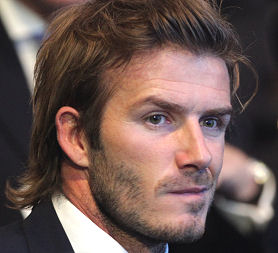Why England’s World Cup 2018 bid failed
Sports commentators tell Channel 4 News England’s humiliating failure to secure the 2018 World Cup may be the result of the dysfunctional way the English game is run.

England’s failure to secure the 2018 World Cup was so humiliating that it has left commentators flailing about in their efforts to explain what happened.
Half an hour before yesterday’s announcement that Russia had won the right to host the world’s biggest sporting event after the Olympics, there was palpable optimism among supporters of the English bid, both in Zurich and back home.
That optimism swiftly turned to incomprehension when it emerged that England had been ejected, not in the final round but in the first round. It transpired that the English managed only two votes out of 22 (one of which, presumably, came from Geoff Thompson, England’s Fifa representative).
Andy Anson, chief executive of the England 2018 bid, believes the press killed England’s World Cup bid. He told a press confrerence: “I still find it hard to understand what happened.” He pointed to the quality of the English bid (“the best technical bid, fantastic inspection visits, the best economic report”), noting that other high-quality applications by the US and Australia had also garnered very few votes.
There must be some disjuncture in responding to the brief, because our technical and commercial reports came top. Mark Reynolds, Catalyst sports management
Mark Reynolds, chief executive of Catalyst, the sports management consultancy, suggests that bidders such as England may have misread Fifa’s intentions.
“I can only assume there is some disjuncture in responding to the brief, because our technical report came top and our commercial report came top. I would imagine the guys on the team must feel they were working to a completely different agenda.
“There is clearly a will, collective or personal, within Fifa to develop the game on a global basis, and that would be the Blatter legacy: to take it into two brand-new continents.”
Why football is not coming home
The fact that football is not "coming home, and the fact the entire England bid garnered just one extra vote, is such a flash of lucidity, such an utter humilitation, that it might be a useful moment to consider Britain's place in the world, blogs Faisal Islam.
The world is becoming more Fifa-like, not less. The globe's governance is becoming more statist, less free, less democratic, more mercantilist, more dirigiste, less free trade.
It is entirely fitting, in this new world, that the nations controlling the world's first and third biggest reserves of natural gas won these totally opaque contests (the second biggest reserves are in Iran - expect the 2026 bid team to start work shortly).
This is the reality, and I'm not entirely sure that Britain knows its position in this new world.
Read more of Russia Beats the UK. Qatar beats the US
For some, part of the blame lies with Geoff Thompson, a Fifa vice-president. It was noted that the publicity-shy former Doncaster Rovers general manager was the only Fifa executive committee member not on stage during his nation’s presentation.
“Geoff Thompson has done a good job and he is a solid guy,” Andy Anson admitted, “but he is stuck out there in Fifa and Uefa on his own. He’s not really integrated into the FA and the Premier League.”
For former FA executive director David Davies, Thompson’s isolation in the shark-infested waters of Fifa politics reflects the dysfunctionality of football administration in this country.
“There’s no question that the musical chairs in the senior positions in the FA over 10 years – which I was in one sense a victim of – have been distinctly unhelpful,” Mr Davies told Channel 4 News.
“The structure of football in England almost builds in conflict. There are no agreed priorities between the FA and the Premier League and the Football League.”
Our great players tend not to go into sports administration, they go into the media. Mihir Bose, writer and broadcaster
Writer and broadcaster Mihir Bose suggests if England wants to succeed in future Fifa-run contests, it needs to encourage a new breed of football administrator. He cites the examples of Franz Beckenbauer and Michel Platini, respectively from Germany and France, who have carved out influential positions as football administrators.
“Where are our famous players?” asks Bose. “Beckham, he’s still a player, not inside the committee. Thompson’s been doing that, but has been sidelined at times. He’s actually quite well regarded, but he’s not a heavyweight.
“So we have problems with sports administrators. Thompson is an example of a well-meaning guy who is clearly not the sort of high-profile person we need. Our great players tend not to go into sports administration, they go into the media.
“In fact, the problem goes deeper. What you want is people inside the committee rooms, working them for years. English sport has to be prepared to put in the time and effort.”
-
Latest news
-
As India goes to the polls in the world’s largest election – what do British-Indians think?6m

-
Tees Valley: Meet the candidates in one of the biggest contests coming up in May’s local elections4m

-
Keir Starmer says public sector reform will be a struggle7m

-
Nicola Sturgeon’s husband Peter Murrell charged with embezzlement of funds from SNP1m

-
Ukraine might finally get $60billion in American weapons and assistance to defend against Russia3m

-




